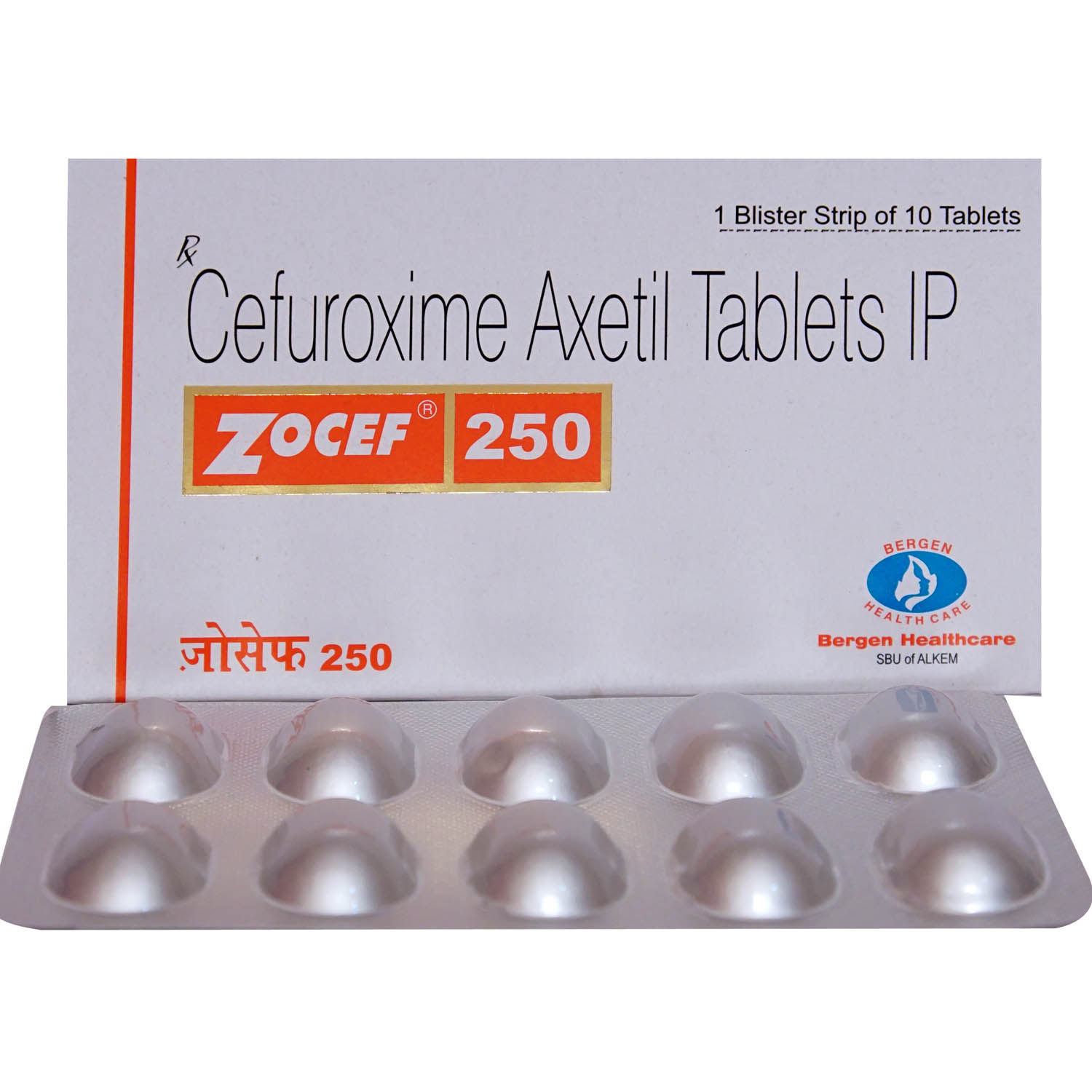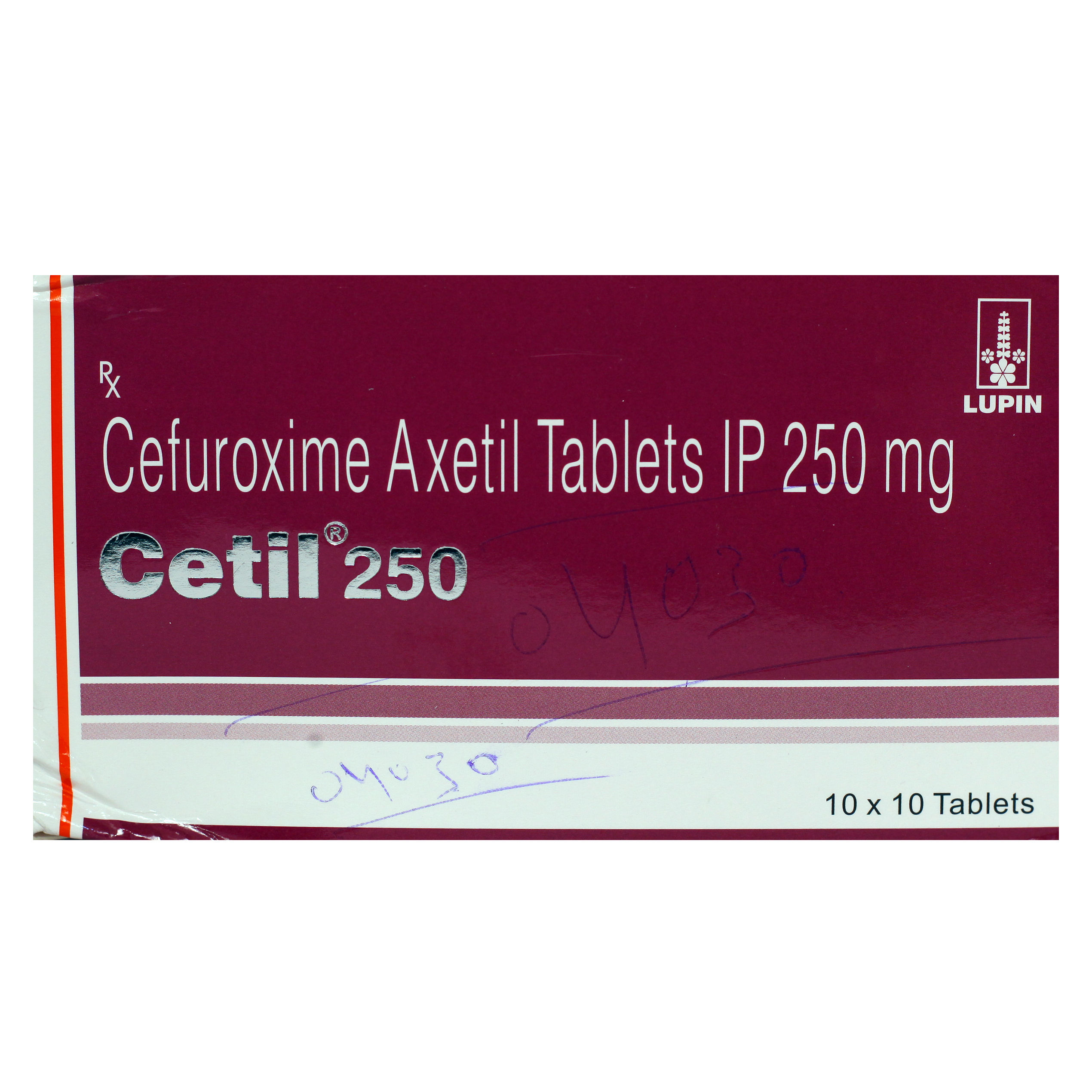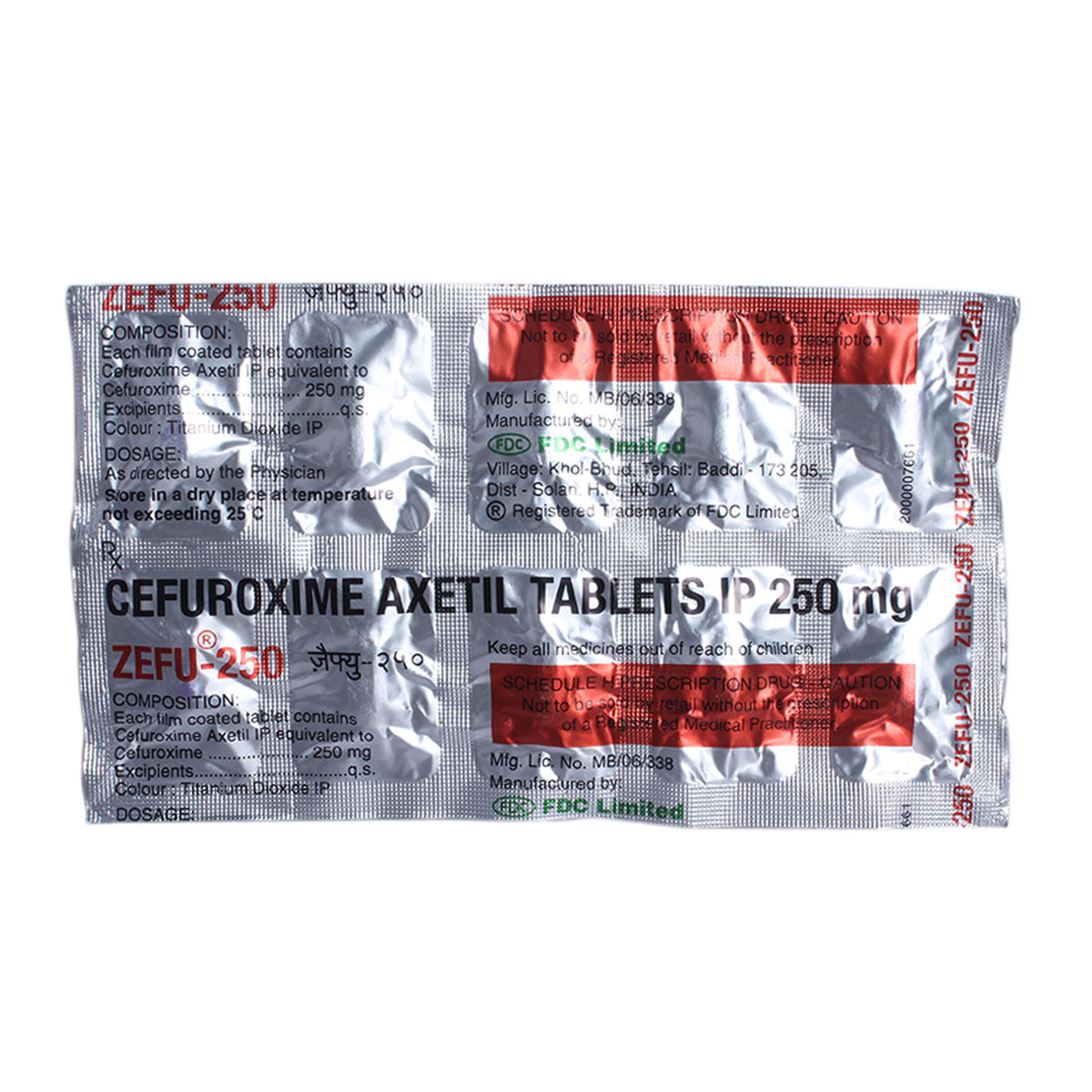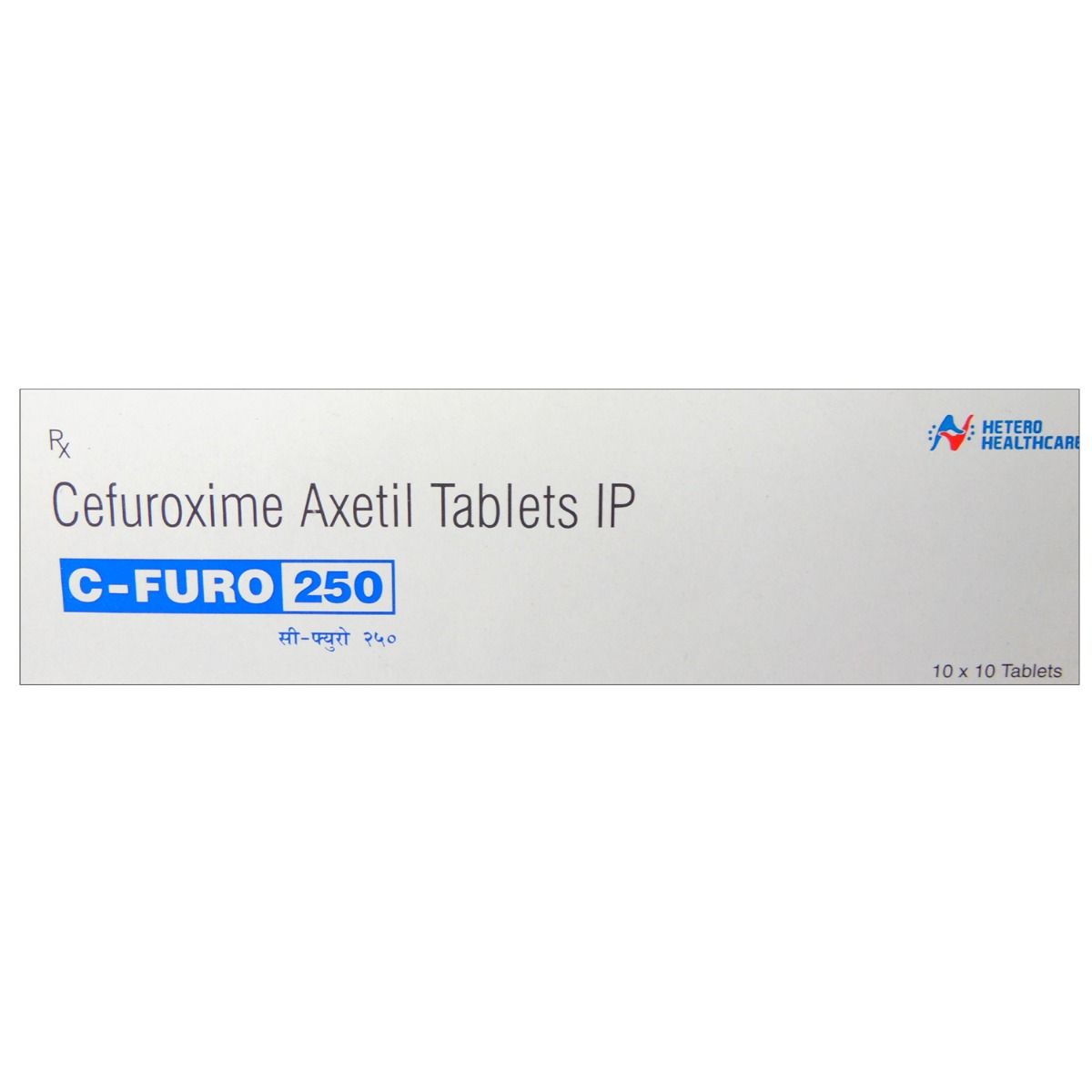Cipcef 250mg Tablet
₹274.5*
MRP ₹305
10% off
₹259.25*
MRP ₹305
15% CB
₹45.75 cashback(15%)
Free Delivery
With Circle membership
(Inclusive of all Taxes)
This offer price is valid on orders above ₹800. Apply coupon PHARMA10/PHARMA18 (excluding restricted items)
Know Your Delivery Time
Provide Delivery Location

Whats That

Secure Payment

India's Most Trusted Pharmacy

Genuine Products
Composition :
Manufacturer/Marketer :
Consume Type :
Return Policy :
About Cipcef 250mg Tablet
Cipcef 250mg Tablet belongs to the class of antibiotics known as cephalosporin, indicated for treating a wide range of bacterial infections. It helps in the treatment of urinary tract infections (UTI), Mild to moderate lower respiratory tract infections (bronchitis), severe lower respiratory tract infections (pneumonia), pyelonephritis (kidney inflammation due to the bacterial infection), uncomplicated gonorrhoea (sexually transmitted infection), Lyme disease (caused due to biting of infected black-legged tick insect) in adults and children above 12 years of age.
Cipcef 250mg Tablet is a broad-spectrum antibiotic that kills a wide range of bacteria (bactericidal). It kills the bacterial cell by binding to the outer layer of the bacteria and blocking the activity of the enzyme that makes peptidoglycan (a vital component of the bacterial cell wall). As a result, the bacterial cell cannot grow and multiply and finally gets killed.
You should take Cipcef 250mg Tablet only if your doctor has prescribed you. Cipcef 250mg Tablet is available in various forms, such as oral tablets, dispersible tablets, and oral suspension. Most bacterial infections get treated within one week, while some conditions might take longer. So, it would be best if you tried to complete the dose your doctor prescribed for the specific bacterial infection. During the treatment with Cipcef 250mg Tablet, you may observe some mild and transient nature of common side effects like headache, dizziness, stomach upset, overgrowth of candida (fungal skin infection), unpleasant taste in the mouth, diaper rashes, and eosinophilia (increased disease-fighting cells WBCs). These side effects are usually in the initial phase and then resolved after some time. However, if these side effects persist, let your doctor know about them.
Overdosage of Cipcef 250mg Tablet can cause brain problems (cerebral irritation with fits or convulsions attack). There is no clinical evidence of a Cipcef 250mg Tablet effect on the mother or baby during pregnancy. However, one should take the Cipcef 250mg Tablet with caution. Cipcef 250mg Tablet is excreted in the breastmilk, so the nursing mother should cautiously take Cipcef 250mg Tablet. This antibiotic may cause dizziness, so patients should be cautious while driving a motor vehicle or operating machinery. Cipcef 250mg Tablet is not recommended for people allergic or hypersensitive to Cipcef 250mg Tablet, penicillin, or other beta-lactam antibiotics. In the initial stage of the treatment, you might have diarrhoea and abdominal cramps due to loss of gut flora (good intestinal/gut bacteria that aids digestion). So, the doctor may prescribe you prebiotics or probiotics to increase the number of gut flora. You can drink alcoholic beverages while taking amoxicillin, as it does not interact with Cipcef 250mg Tablet. Liver and kidney-affected people should take this medication with caution.
Uses of Cipcef 250mg Tablet
Medicinal Benefits
Cipcef 250mg Tablet treats a wide range of bacterial infections caused due to gram-positive and gram-negative bacteria. It helps treat respiratory tract infections, ear infections, skin infections, genitourinary infections, and bone infections. Besides this, Cipcef 250mg Tablet also prevents in spreading of the infection after surgery and in the early treatment of Lyme disease caused by bacteria (Borrelia burgdorferi) in adults and children over the age of 12 years. The usual course of Cipcef 250mg Tablet is seven days (5-10 days). But, your doctor might prescribe you Cipcef 250mg Tablet for a longer duration depending on the condition of infection. Cipcef 250mg Tablet has excellent antibacterial activity against gram-positive and gram-negative bacteria, including Staphylococcus aureus, Haemophilus para influenza, Streptococcus pneumonia, S. pyrogens, Haemophilus influenzae, Klebsiella pneumoniae, Moraxella catarrhalis, and Neisseria gonorrhoeae.
Side Effects of Cipcef 250mg Tablet
Headache
- Dizziness
- Stomach upset
- Overgrowth of candida (fungal skin infection)
- Unpleasant taste in the mouth
- Diaper rashes
- Eosinophilia (increased disease-fighting cells/WBC)
Directions for Use
Storage
Drug Warnings
Special care should be taken by the people taking Cipcef 250mg Tablet who have allergic reactions to penicillin or other beta-lactam antibiotics. Use with other antibiotics may lead to a fungal skin infection known as Candida. Prolonged use of Cipcef 250mg Tablet may also cause an overgrowth of other pathogens (like enterococci and Clostridium difficile), which can be prevented by stopping Cipcef 250mg Tablet. The case of colitis (inflammatory bowel disease) has been reported using Cipcef 250mg Tablet. Hence, it is important to consider the proper diagnosis of the patients who developed diarrhoea after taking Cipcef 250mg Tablet. If the symptom of diarrhoea persists for a longer duration, the patient may experience abdominal cramps. In this situation, you should discontinue the intake of Cipcef 250mg Tablet immediately. The Jarisch-Herxheimer reaction (caused due to toxins released by the death of bacteria within the body during antibiotic treatment) has been seen in the patients taking Cipcef 250mg Tablet for the treatment of Lyme disease. Your ability to perform tasks that require judgment, cognitive, or body movement may be affected, and you may have dizziness. So patients taking Cipcef 250mg Tablet should be warned to be cautious when driving or operating machinery.
Therapeutic Class
Drug-Drug Interactions
Drug-Food Interactions
Diet & Lifestyle Advise
It would be best to take probiotics after taking the full course of Cipcef 250mg Tablet to restore some of the healthy bacteria in the intestine that may have been killed. Taking probiotics after antibiotic treatment can reduce the risk of antibiotic-associated diarrhoea. Certain fermented foods like yoghurt, cheese, sauerkraut and kimchi can help restore the intestine's good bacteria.
Include more fibre-enriched food in your diet, as it can be easily digested by gut bacteria which helps stimulate their growth. Thus fibre foods may help restore healthy gut bacteria after taking a course of antibiotics. Whole grains like whole-grain bread, and brown rice, should be included in your diet.
Avoid taking too much calcium enriched foods and drinks as it might affect the working of Cipcef 250mg Tablet.
Avoid intake of alcoholic beverages with Cipcef 250mg Tablet as it can make you dehydrated and affect your sleep. This can make it harder for your body to aid the Cipcef 250mg Tablet in fighting off infections.
Habit Forming
How Cipcef 250mg Tablet Works
What if I have taken an overdose of Cipcef 250mg Tablet
Alcohol
Unsafe
You are recommended not to consume alcohol along with Cipcef 250mg Tablet.
Pregnancy
Safe if prescribed
Cipcef 250mg Tablet is a pregnancy category B drug. So, Cipcef 250mg Tablet can be safely taken by pregnant women if prescribed by the doctor.
Breast Feeding
Safe if prescribed
Cipcef 250mg Tablet is excreted in human milk, caution should be exercised. Your doctor will weigh the benefits and any potential risks before prescribing it to you.
Driving
Caution
No studies on the effects on the ability to drive and use machines have been performed. However, as this medicine may cause dizziness, patients should be warned to be cautious when driving or operating machinery.
Liver
Caution
Consult your doctor, there is no substantial research yet on the use of Cipcef 250mg Tablet
Kidney
Caution
Consult your doctor, there is no substantial research yet on the use of Cipcef 250mg Tablet
Children
Safe if prescribed
Cipcef 250mg Tablet can be given safely to children provided dose has been prescribed by a child specialist. However, There is no clinical evidences of using Cipcef 250mg Tablet in children under the age of 3 months.
Country of origin
Author Details
We provide you with authentic, trustworthy and relevant information
FAQs
Disclaimer
Product Substitutes





_0.jpg?tr=q-80)















